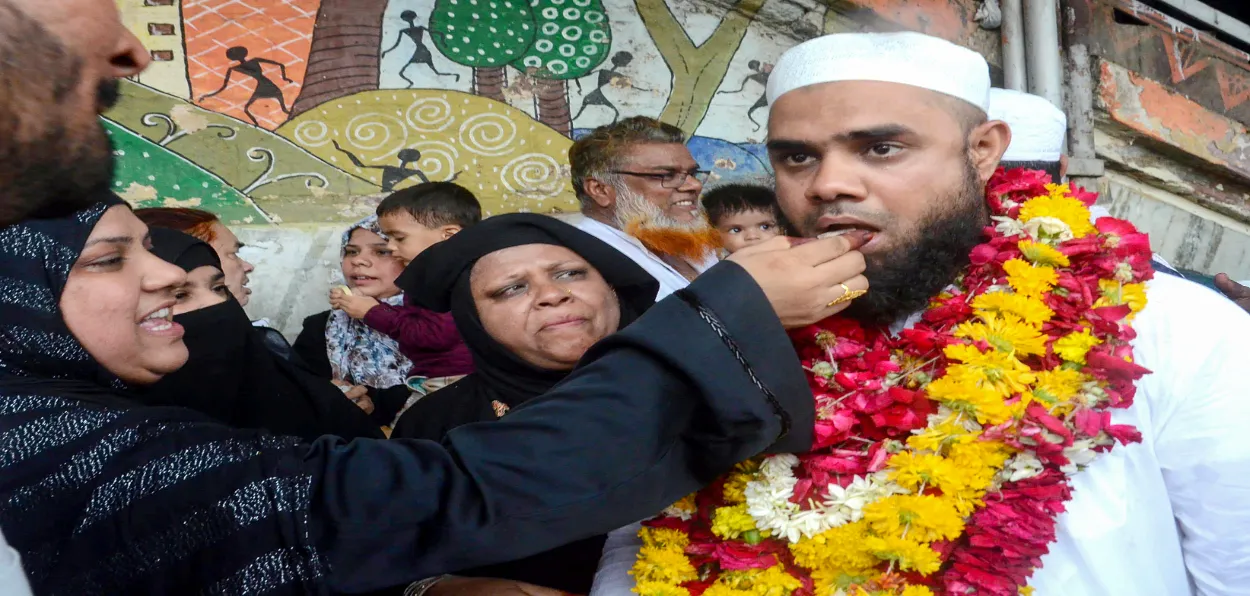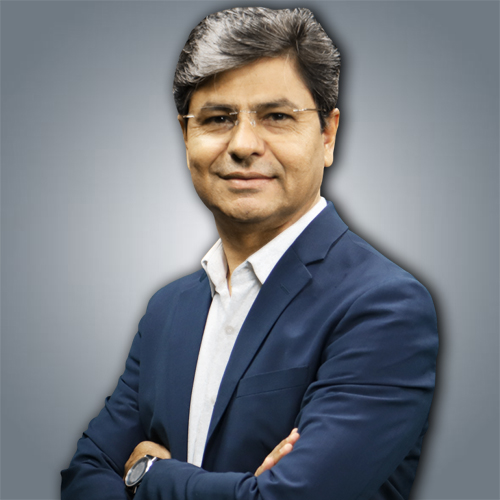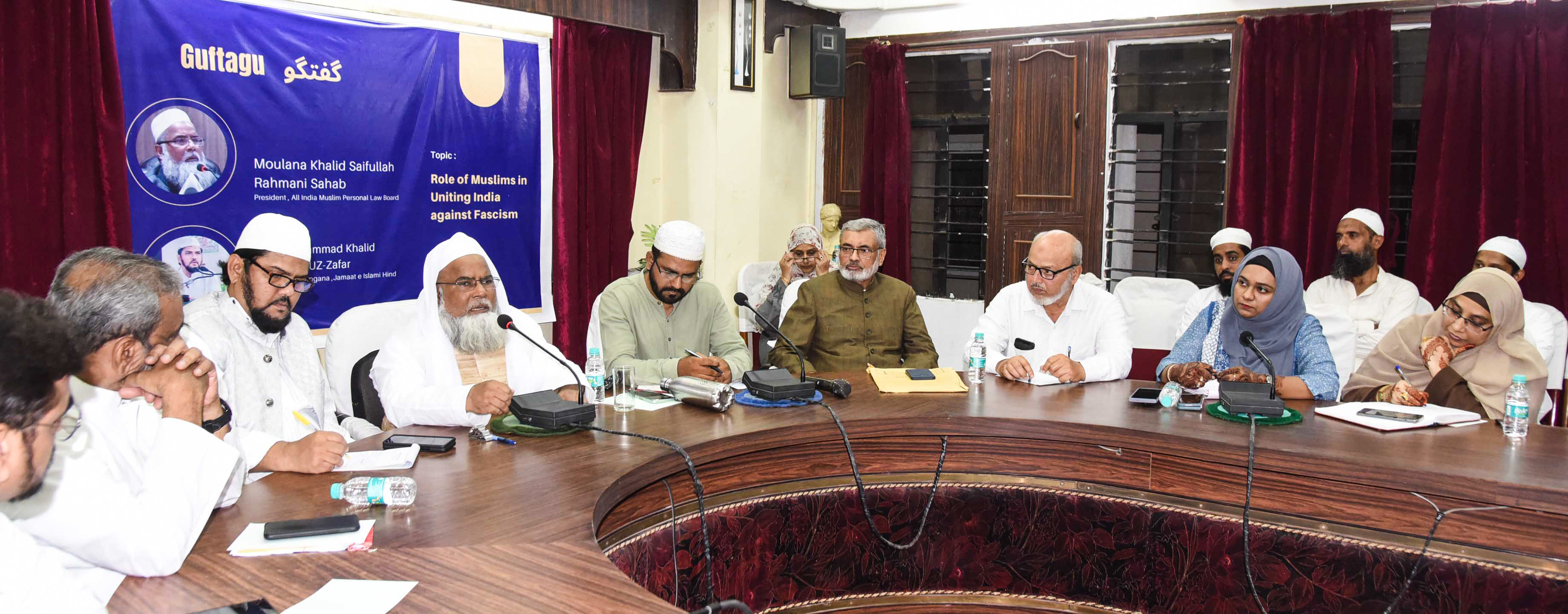
 Atir Khan
Atir Khan
As the majority of Indian Muslims have adopted a ritualistic approach to their faith, and distanced from the true spirit of Islam, Islamic scholars are asking for a period of serious introspection within the community.
The concept of faith for Muslims has become largely limited to rituals: the five daily prayers (namaz), fasting during Ramadan, and undertaking the Hajj pilgrimage. While these practices are mandatory, the foundational principle of Islam - the Shahadah, or declaration of faith in Allah and His Messenger Prophet Muhammad - has been reduced to a formality, devoid of its deeper meaning.
This shift has led to a decline in fundamental Islamic values such as character building, religious tolerance, and the pursuit of knowledge. Prophet Muhammad would likely be disappointed to witness how Islam is practiced today.
The community has lost its sense of mizan- an inherent concept in Islam, which means balance, justice, measure, and harmony. The importance of this concept’s dimension is enunciated in Surah 55 of the Quran.
Muslims have also ignored the ontological triad of Spiritual, Human, and Material balance. A concerning outcome of this trend is that many non-Muslim communities perceive Muslims as inherently violent, believing that their rise poses a threat to societal harmony.
 Muslims praying on Friday in a Lucknow mosque
Muslims praying on Friday in a Lucknow mosqueThis perception is often reinforced by Islamist groups that interpret Islam through a lens of aggression and exclusivity; they tend to distort the teachings of the Quran and Hadith to justify their actions. However, one must never forget that two wrongs in any situation don’t make a right.
Such extremist interpretations equate religious supremacy with violence, fostering misconceptions that the broader Muslim community supports their ideology.
This has trapped innocent Muslims worldwide in a cycle of suffering and victimhood; in the action and reaction binary. In reality, majority of Muslims are not extremists; they reject these harmful narratives. The Muslim community continues to grapple with the consequences of terrorism perpetrated by those who falsely claim to represent Islam.
Moreover, some extremists frame opposition to their views as conspiracies against Muslims, failing to recognize that in today’s interconnected world, information spreads rapidly and transparently—any conspiracy cannot remain secret for long.
 Kashmiri Muslims women on seeing the Holy Relic displayed on Eid Milad un Nabi in Srinagar's Hazratbal shrine
Kashmiri Muslims women on seeing the Holy Relic displayed on Eid Milad un Nabi in Srinagar's Hazratbal shrineConsequently, the regressive discourse propagated by these groups has led many non-Muslims to believe that distancing Muslims from their ‘aggressive’ faith could serve humanity better. This sentiment is increasingly echoed in international discussions and cannot be ignored.
Prophetically, Prophet Muhammad warned about a situation when Muslims would resemble "foam on the sea," signifying a loss of value and influence.
This deterioration occurs when individuals become excessively attached to worldly possessions and fear death due to the consequences of their sins.
Today, society often undervalues individuals of high moral character. Unlike previous eras, where such individuals were revered regardless of their material status, character is frequently overshadowed by wealth and influence. The concept of sohbat (good company) has become redundant.
If Muslims wish to avoid becoming like the "foam on the sea," they must engage in profound introspection and seek meaningful reform, reminiscent of the transformative leadership of Prophet Muhammad in Mecca.Sincere Muslims currently face a sense of helplessness, as their voices often go unheard. However, there is a growing realization within the global Muslim community that reform is necessary to align with the true faith of Islam.
Prominent scholars like Muhammad Al-Isa, Javed Ahmad Ghamdi, Shaykh Hamza Yusuf, Shaykh Abdal Hakim Murad, Seyyed Hossein Nasr, and Ahmed Paul Keeler, through their discourses, are creating a suitable narrative for Muslims to follow, one that aligns with the true essence of Islam and is most suited in the contemporary world.
 Muslims discussing issues confronting India
Muslims discussing issues confronting India
Indian scholar Syed Amir Ali has written a rather illuminating book The Spirit of Islam. Unfortunately, such scholars have become scarce. Today, Indian Islamic scholars tend to be either political or ritualistic, failing to guide Indian Muslims toward meaningful discourse.
For example, if you ask a Madrasa student why he is studying there, his likely response will be that he is there to please Allah. If you probe further, they may struggle to articulate their understanding of Islamic teachings.
Conversely, students receiving a Western-style education are often motivated by the desire for a better life, yet they may lack the skills necessary for employability due to outdated curricula.
For a meaningful change, Indian Muslims must acknowledge the growing disconnect from their faith. They should engage in sincere acts of worship, such as performing two rakat of namaz and seeking forgiveness from Allah.
However, it should not be forgotten ritualistic practices alone are insufficient; true adherence to Islam requires moving beyond complacency and committing to character development, with quality education serving as the cornerstone.
ALSO READ: Tasawwuf: The Essence of Sufi Learning and Its Modern Diminishment
The Indian Muslim community stands at a crossroads. To revitalize their faith and societal standing, they must embrace introspection, pursue education that fosters critical thinking, and strive to embody the principles of Islam in their daily lives.
Only through this conscious effort can they hope to change their narrative and contribute positively to the world around them.
